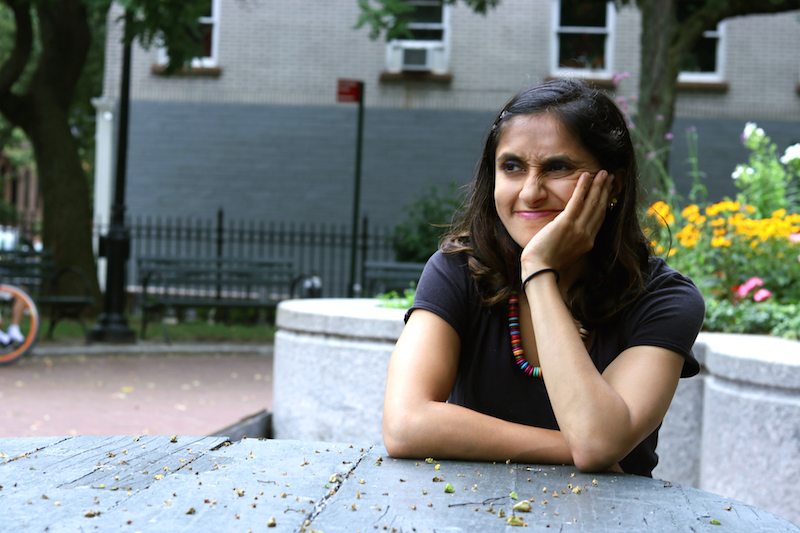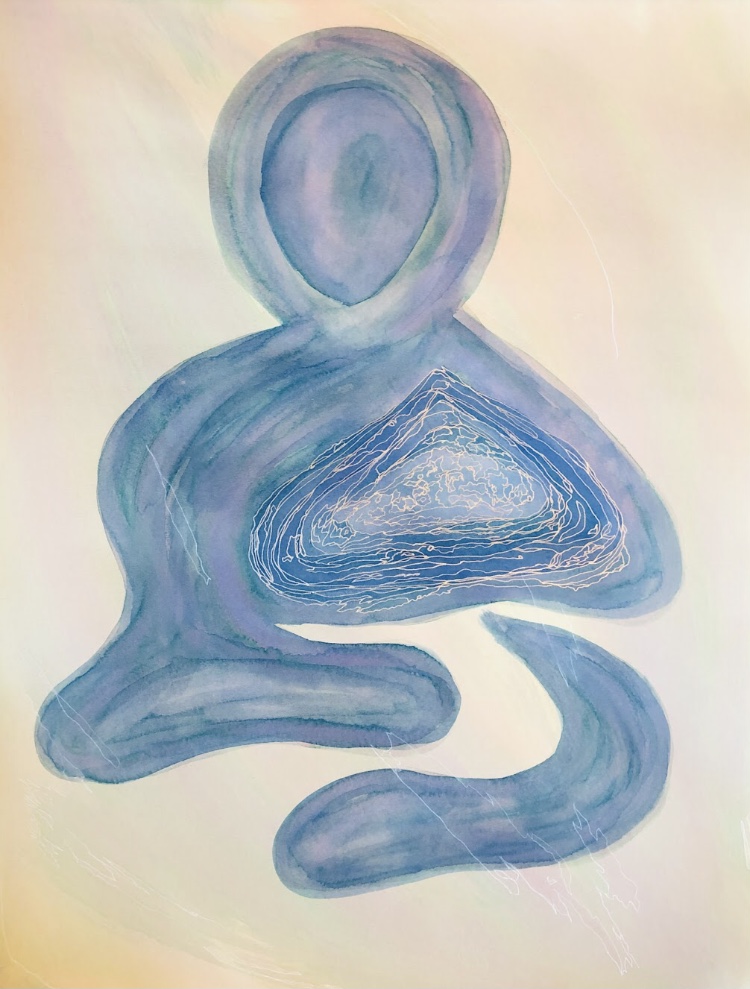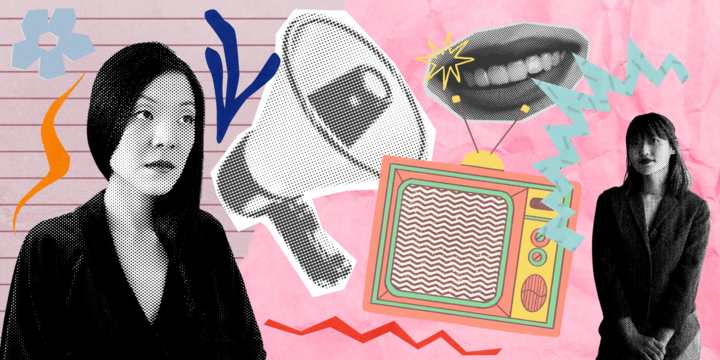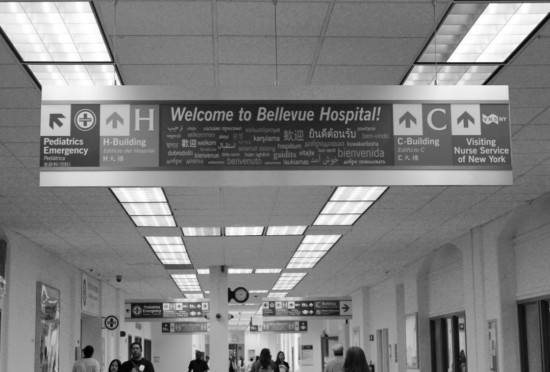Comedian Aparna Nancherla talks standup, battling anxiety, and pushing the envelope as a woman of color in comedy

November 27, 2017
I first met comedian Aparna Nancherla in 2014 at the “Beyond Bollywood: Indian Americans Shape the Nation” event at the Smithsonian in Washington D.C.. She was performing stand-up and I gave a little talk that I bungled from lack of sleep. Afterwards we sat near each other at a bar and I said hello intermittently. In the intervening years she’s become a rising voice in stand-up, both as performer and host, an increasing presence on television in her acting and voice work, and is a staff writer for Late Night with Seth Myers. We met up this summer in Cobble Hill Park near her apartment.
Ashok Kondabolu: I always feel a little intimidated when I prepare for interviews, depending on my familiarity with the interviewee and what they do. It’s easier with comedians, because I’ve been around them since I was a kid, and feel there’s a common understanding to not take ourselves too seriously.
Aparna Nancherla: I always wonder if people in other fields get stressed out for interviews, and what they stress about. Personally, I’m always trying to think about being serious and thoughtful but also trying to be a little funny.
Why do you do interviews?
I don’t know—I never considered that it’s an option not to do them. I guess when you start comedy you’re supposed to say yes to everything. It’s that instinct to say, “It’s good exposure, so I should do it.”
Have you gotten burnt yet? Has anyone misrepresented you?
I remember I did this short podcast with my friend Jacquelyn on depression. And then I did this BBC interview that was in the middle of the night because of the time difference, and they basically asked, “Do you think it’s appropriate to make fun of depression?” It was a “gotcha” segment, but I didn’t really feel attacked because I didn’t find validity in their argument, at all. I wasn’t prepared for it, either.
If you could go from doing many interviews to only doing one a year without ever being misconstrued, that would be ideal.
Yeah. But then there would be so much pressure on that single interview.
My one interview fantasy would be a New Yorker profile, but that’s a pretty common one.
Well, yeah—I think it’s because they really dig deep and hang out.
I guess it’s just the fantasy of hanging out with a stranger and being self-indulgent for days on end, and then just seeing what the person thinks of you when the piece comes out, what they didn’t get or invent about you to make the piece more interesting.
What was your childhood home like?
I grew up in the suburbs. My parents are both doctors who worked a lot, and my sister and I had a nanny until we were old enough to be home alone by ourselves. There was a lot of emphasis on doing well in school, but we also took part in some of your classic extracurriculars–piano lessons, dance classes… I would say it was pretty typical for a suburban kid.
Were your parents funny?
Were they funny? I don’t know, I don’t feel like I grew up in a funny house, like I don’t think everyone was cracking jokes. However, I feel like my mom had, and still has, a sillier sensibility that we would bond over. She, my sister, and I had more of a fun side.
How do your parents feel about what you do? Apologies, I know this is the “Asian interview question.”
They’ve always been very supportive of it. When I first started, they were the most wary of what [comedy] is. When I first told them I wanted to make a career out of comedy, they were like, “Are you sure you don’t want to go to grad school?” But the more I progressed in comedy and was able to show them what I had achieved, they were able to see it as a viable thing.
You mentioned in another interview that you think that depression is so widespread because industrialization has freed people up to think about themselves more. That rumination in our “free time” leads to depression. In another interview, you were talking about all the different projects you’re working on at once, and how crazy that is. Do you think that being that busy is a response to avoid rumination? Like, being in Google Docs all day keeps you from ruminating on life?
Yeah, I think it’s definitely a way of escaping your own mind, to constantly be running around and doing stuff and having obligations to people. I have a mind that is always questioning everything. I’ll always feel that the work I’m doing isn’t important, in comparison with what other people are doing. Avoiding that part of my brain, for as long as I can, is really an effort.
Do you feel like writing jokes or writing comedy is kind of like creating and then working on a problem that you can solve?
There is something analytical about it, in that you can look at a joke a certain number of ways and tinker with it. In that sense, the process of writing comedy is a bit like constant engineering and re-engineering.
When you talk about your depression, which you do fairly openly, what is a primary point that you’re trying to get across?
I think I first started talking about it for myself, because I was stuck in a rut and having trouble creating anything else. I thought, maybe I’ll just write about depression because I have nothing else going on. I was surprised when I talked about it on stage and found that people responded to it in a way that made me want to talk about it more. But yeah, I don’t think I had any agenda going in.
Right, and maybe then there’s the fear of getting pegged as like—oh! it’s the heavy depression comic!
I think it’s hard, in comedy, or in any field maybe, to not have people put you in a box—“this is what this person talks about the most” or “this is their angle”—because I think for marketing it’s a way to sell a product. But I don’t think of myself as ‘the Mental Health Comic.’
You have one of the most distinct accents I’ve ever heard. I’ve heard it described as a drawl.
I remember seeing that, too.
It defies expectations in a way I think is really effective in delivering a joke. Have you found it to be an impediment, or a hidden weapon?
That’s a good question. I feel like the longer I’ve been performing, the more exaggerated it has become. It’s not intentional, but I think that when I’m onstage I’m a certain version of myself, and when I’m offstage I’m another version of myself–each part has bled into the other. My accent is interesting because people always assume I’m from certain places, like the Midwest, but their assumptions are never right.
What are some annoying, constantly recurring roles that you, as a South Asian woman, are asked to play?
I’m always asked to play a terrorist, or a clerk, or a taxi cab driver… roles that are typically associated with men. There is a lot of stuff in the spy world, where you’re the Middle Eastern-something operative, techie person, etc. The weirder ones for me have been when they clearly want a much older South Asian woman, like an MTA worker who is supposed to be an immigrant with a heavy accent, or some woman who works at a laundromat. I always wonder why I’m brought in for these blue-collar immigrant, “spice of the neighborhood” roles. I don’t think having those roles is actually being diverse–you’re still just operating off stereotypes.
How do you feel about acting in general? To me, your role in Master of None seemed like a very exaggerated version of yourself. Do you have an interest in playing characters that don’t resemble your comedy?
Not as of now–I very much respect what actors do, as a lot of them put many years into their work, but I don’t feel like I’m in that category. My acting is just a version of myself, and I’m happy to perform that if it fits what people are looking for.
Do you still get nervous before performing?
I do! I don’t know if I’ll ever not get nervous. I think I’m just an anxious person, but my anxiety definitely peaks right before I perform, whether it has to do with expectations or my tendency to expect the worst. Through therapy, I’ve worked on ways to handle the symptoms of being shaky and really nervous. Anxiety is something that I’m constantly battling with.
Every performance is so direct though, you know? “So I’m gonna stand here and talk to you guys for 45 minutes in a row, and you’re all facing this direction and I’m facing the other way. You paid money to see me, and I have to be good.” There’s a measure of confidence that you have to have.
I think it’s exactly that, and it’s that I can’t not re-remember those things before every time I perform. And I’m just like, “Oh, how is this not going to go terribly?”
Yeah, I feel like after 15 or 20 minutes I want to stop the show and ask, “You guys like this? Is this good?”
I feel like there are performers that very much believe that what they have to say is important and worth having people spend an entire evening listening to. But I’ve never felt that relationship to my work, where I would be like, of course you would hire a babysitter to come watch me talk for an hour.
I read that you got into comedy when you were a psychology major in college. Is that accurate? Did you like standup when you were younger? Did you follow it?
I think I’d seen standup once or twice on TV but I definitely didn’t think it was a career you could pursue. I had somehow thought of the entertainment industry as another realm, where people who were Indian–people like me–had no access to. I really didn’t know it was an option at any point until maybe high school or college. And then it was just something I tried. It was a response to going on depression medication for the first time, like this initial euphoric boost—I felt like I could do anything. That’s the only reason I tried comedy. Otherwise, I can’t even imagine doing an open mic if I wasn’t a standup comedian. I came to stand-up without really having a hard definition of what standup was.
How do you feel about the glut of comedy nights? I feel like every bar is now like, “Let’s have a comedy night!”
It is weird. In New York, especially, it seems like as soon as you open a business there’s automatically a comedy night, but I’ve never found it to be oversaturated. I don’t know if it’s different if you’re the person coming to shows, but as a performer, more stage time is good. I’ve found I’ve enjoyed performing outside the clubs more, so I tend to prefer those independent, DIY shows to the comedy club.
Why is that–do you think people have fewer expectations?
Maybe they have fewer expectations, but I also don’t think you should have to pay 25 dollars and two drinks to see a maybe-not-great show. So I think it’s that expectations are lower, but justifiably. A lot of us might be working out stuff.
Twenty-five dollars is a lot! Do you read your own standup show reviews?
Oh no. I know a lot of people read all their stuff and Google themselves, but I’m always trying to run away from all of that. I already think about myself too much, so I don’t need more ammunition for that fire. I just performed in London for the first time and I think that review culture is even bigger there, where people really consider reviews in what shows they’re going to go see. I get that it can influence people’s opinions but I just think it’s always just one person’s opinions. They didn’t go to critic’s school and get a degree.
‘My sense of humor is just like yours, and this is what I think!’
So, me and my brother do a show called “Untitled Kondabolu Brothers Project,” which is improvised, freeform talking, with some structure in terms of the topics we discuss… But [the show] is not like a lot of comedy where you can gauge your success through the metric of clapping or laughing. So there’s a lot of moments of self-doubt and feeling self-indulgent. Do you find that with some types of comedy that you do, its success can’t be measured in terms of people’s laughter?
Sometimes if you do an event that may be more social-justice oriented or have a more “artsy” attendance, the crowd just doesn’t laugh as much. You read it as [the show] didn’t go well, but afterwards people will say, “I really enjoyed that!” and you’ll be like well, they were attentive, they just weren’t as vocal. I think that sometimes it’s just hard to gauge [a show’s success] by laughter, which a lot of comedians might disagree with. It’s just that some audiences are a bit more thoughtful than others.
Afterwards, people will generally say they enjoyed the show and that it was funny, but other times they’ll say it was “interesting,” which is the worst.
I know! “Interesting” never feels good.
Do you watch Game of Thrones?
Nope. But it’s not because of disinterest. It’s just one of those things where everyone was watching it, and I was so behind that I got overwhelmed and was like, I’ll just wait until it’s over and then I’ll watch it.
Shows like that are always weird, because they’re so entertaining… and people are like, “Well, you know, it’s supposed to be like medieval Europe,” but then there are dragons, and magic… it’s just not a real thing!
I know–you could push the envelope with just reality, too.
To some extent, that’s always been the case with what we’ve been consuming. I’d like to think that people of color … have stronger, more functional imaginations, because we’ve had to put ourselves in places of the white protagonist so often in movies and TV, etc.
I think that’s true, because if you don’t see yourself onscreen, you have to create your own version of it. We did grow up watching the Mahabharata and the Ramayan, which were awesome in terms of their production value, so at least I got a balance of some reflection of myself playing the lead characters.
Do you feel like you stumbled into your career, to some extent?
A little bit, yeah. I’ve always been someone who is bad at setting goals–that’s actually something I’ve only been comfortable doing the past few years, being like this is a thing I want, and I’m going to put things in place to get there. My goal for a long time was simply to do comedy full-time. Now that I’ve been fortunate enough to be in that boat for a couple of years, [my new goal] is to create projects that are more in line with my voice, to be able to collaborate with friends and peers that I respect and enjoy working with.
One of the things that I like about being in entertainment is having control of my own time. I feel like, for other people, it’s like “I want people to look at me,” “I want to feel like I’m liked,” or something like that.
I think my goal, on the simplest level, is just to do work that I find, one, worthwhile and, two, funny to me. Not everything I’ve created to this point I would love if I watched. I think being true to [my own sense of humor] is more of a priority than it was before.
Sometimes, when I’m grinding away on projects, I imagine just making a few pieces of work that I’m happy with, that people consider to be “good art”, and then heading off into the woods for rest of my life. New York City is so grinding and ego-driven and what have you done for me lately, who are you, should I know you… that I feel like being in this environment in my 50s and 60s would not be ideal. There’s no center.
Yeah, it doesn’t feel like I could do this forever. I feel like a lot of my closest comedian friends are constantly tortured by why we even do comedy, and are always flirting with this of idea of quitting and–yeah–moving to the woods.
Comedy especially, there’s like this self-flagellation aspect… like you have nowhere to hide. It can be so confessional.
Yes, the confessional aspect, and just needing constant validation; it’s inherent in your career that you depend on a reaction. As I get older, I find myself asking, is this something I wanna be doing decades from now? I don’t have that relationship with [comedy] where I’m stumbling on deep truths that everyone has to hear. So I’ve been reflecting on other ways to put out the same ideas. Because you’re right, in stand-up especially, you can’t do it in the woods. You need to exist in only certain cities to make a viable career of it.
I feel like my brother and other comedians, at some point in their career, are just like, I want to create something that isn’t so direct, as a work of art, that has more context, where it’s not just “me talking.”
Right, because after a while, you just get tired of yourself as the product and want to be a part of something less overt.
Exactly, because people’s expectations of you play a part in how you express yourself.
Especially with comedy, you can’t divorce people’s opinions of you from the work, because you’re essentially talking about yourself.
I’m old enough where I grew up without social media and smartphones, or even computers until I was 8 or 9, and I remember when Instagram became popular, I actively chose not to get it because I already felt like Twitter was commodifying thoughts and emotions. I found it disturbing–but also kind of fun–that I was never alone because I could form thoughts into a tweet. With Instagram, I thought up until this point I could still look at things…
Yeah, without thinking of it as like a post.
Exactly. What is your relationship with social media?
I feel like I have the same struggle in my head. But for me, Twitter has also helped my career a lot, and afforded me opportunities I couldn’t have had otherwise, so I definitely value it as a part of how I’ve built my career. At the same time, I don’t feel a sense of loyalty to it in that I can never stop tweeting. It’s a medium I’ve been pursuing for a few years, but maybe I’ll cut back on it after a while. Like with anything creative, you want to keep yourself interested, too, not just trying to market yourself constantly for the sake of marketing yourself.
Why do you think people always come to see comedy? I feel like there are those die-hards who just love comedy, but I also feel like the crowd has people who are outsourcing their humor and comedy needs to professionals because their friends aren’t funny, or there’s no humor being generated in their lives.
That’s an interesting question, because I guess that’s true–I always assume that people’s social groups are constantly joking around, like that’s how humans interact and connect–but you’re right that there are people who take themselves more seriously and just don’t laugh that much in general. It’s so alien to how I’ve always lived my life, because I use laughter as a defense mechanism–even if I’m uncomfortable, it always helps if I find something to laugh about. It sounds so grim to have to go pay money to get that release, but I do think that’s part of it. Especially since the election, people have told me after shows, “Oh, I really needed to laugh lately.”




